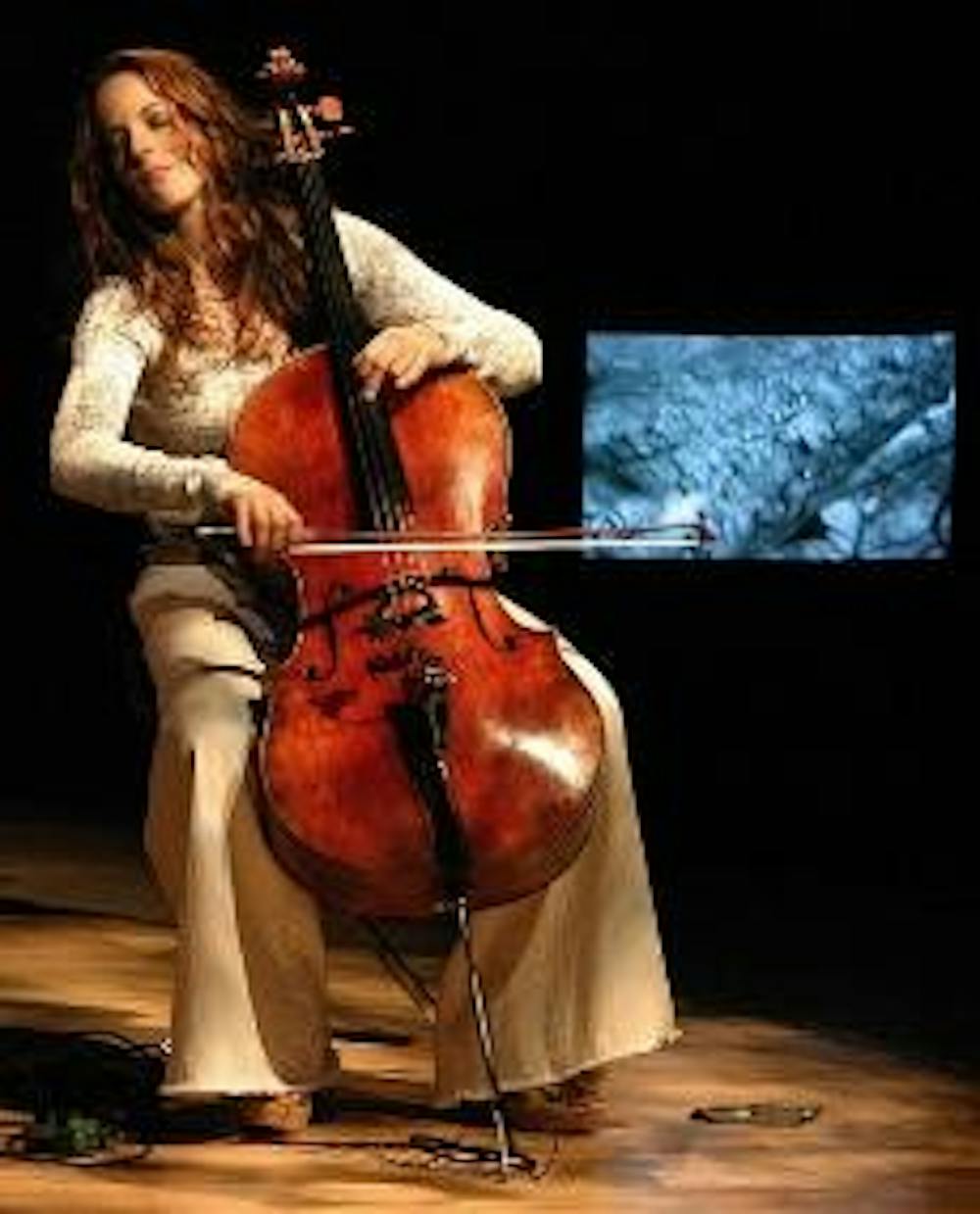The three main stages at the Kennedy Center exhibit world-famous operatic performances, masterful examples of theater and dance and some of the finest classical musical concerts in the world. However, on the top floor of the building is the lesser-known and more intimate Terrace Theatre.
Adjacent to a balcony featuring some of the greatest vistas in the city, this space is home to artists who are on the cutting edge of music and theater. Maya Beiser is one of these artists, and last Saturday she debuted her show "Almost Human" there.
The show, inspired by Beiser's belief that the cello most closely resembles the human voice, presented works inspired by Jewish, Muslim, Chinese and Cambodian cultures. Although Beiser was the only person on stage, her instrument was joined by a multitude of other sounds, including prerecorded singing, ambient noises and at times even Beiser's own cello looped upon itself.
The concert opened with Beiser playing in front of a projection screen. The music and visuals were disorienting as she played dissonant notes on her cello while images obscured by static flashed across the screen. The grainy video displayed blurred images of a soldier and a girl but the black-and-white pictures were too unclear to discern any plot. A later work by "Crouching Tiger, Hidden Dragon" composer Tan Dun was more arresting. It featured film of a lone East Asian singer harmonizing with Beiser on stage and gave credence to the cellist's assertion that the cello can sound humanlike.
One piece that stripped her of visual accompaniment was a work by Cambodian composer Chinary Ung. Ung's folk-inspired piece was radically different from Western arrangements, and Beiser shifted quickly up and down the fingerboard while alternating between long, legato bow strokes and short staccato ones. Although the tone of her high notes was never shrill, the piece was difficult to enjoy for those accustomed to the traditional structure of classical Western work.
Beiser shifted easily between conventional folk sounds and contemporary electronic ones. Two of her most innovative pieces took advantage of recording devices that allowed her to complement live stringing with prerecorded versions of her playing. In "Motion Detector," Beiser used a pedal to record herself playing a series of short melodies. These melodies were then layered upon each new series so that, by the end of the song, there was a cacophony of short pieces that combined to form a pleasing sound.
The second half of the performance was a culmination of the styles Beiser presented in the first hour. In "I am writing to you from a far-off country," her only piece after the intermission, Beiser presented work that could not be easily classified as either music or theater. Part poetry and part instrumentation, Beiser's voice and cello were flanked by seven television screens that presented disjointed images of the sun rising, a man's eye, birds flying off a mountain and waves crashing against a beach.
The sheer preparation it took to memorize the poem and the instrumentation for the 45-minute work was laudable but the content left some in the crowd scurrying for the exit before the end of the performance. The poetry composed by Belgian Surrealist Henri Michaux seemed to border on the absurd at times. Beiser spoke directly to the crowd in metaphors and allusions that often left it searching for meaning. One line compared the weight of babies to clouds while another said resisting mountains was futile.
Perhaps the most telling question came near the end of the performance when one quote from the poem asked whether the words had been understood. The answer to this was, unfortunately, a resounding no.
Maya Beiser's performance had moments of technical brilliance but this creativity was often stifled by esoteric content. Until mainstream perceptions about how classical music should sound change, acts like Beiser will likely continue to be relegated to the top floor of the Kennedy Center.





